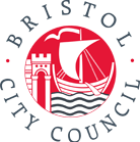Improving Care in Self-Harm HIT 2020-21 review
- 20th July 2021
Drs Lucy Biddle, Becky Mars and Sandra Walker, Improving Care in Self-Harm (STITCH) HIT co-directors, reflect on 2020-21.
The COVID-19 pandemic meant some planned STITCH HIT projects were delayed, but new opportunities also arose.
The team is analysing data from Southmead Hospital, looking at A&E presentations by people who have self-harmed during the pandemic compared to the previous year. Anecdotally, staff at Southmead and at the Bristol Royal Infirmary have noted that although numbers fell, those who did attend emergency departments had more severe mental health issues than previously. We will see if the data confirms this anecdotal evidence, and if so, we will explore with community mental health organisations how to better support people who self-harm.
Sponsorship for the Mining the Gap project now sits with the University of Bristol and ethical permissions are being sought. This project aims to reduce health inequalities by identifying the needs of groups such as Bristol’s Somali population who typically fall into gaps between services.
Other highlights from the year:
- We are fostering closer links with Weston hospital and including them in our work, now they are part of University Hospitals Bristol & Weston NHS Foundation Trust.
- We maintain close connections with Bristol-based community organisation Self Injury Support (SIS) and worked with them to increase their role in reducing eating disorder attendances within BNSSG CCG.
- We have created GP training materials which will be hosted on REMEDY, the most used local online GP resource, in the form of ‘10 tips for management of people who present with mental and emotional health issues, including self-harming’. It is hoped that this will enhance the patient journey.
- Having undertaken some equality, diversity and inclusion training, we are now looking more closely at ways to broaden the impact of STITCH HIT work across cultures.
- Sandra Walker, was interviewed as part of the development of a BBC Radio 4 File on 4 programme on surviving self-harm, which aired in February.
- We continue to be part of the student mental health forum locally and have consulted on various research projects over the year. These include work to improve the ways that practitioners talk to young people about harmful online activities, and the CONNECT study, which aims to develop and then test a brief psychological intervention for people who present to the emergency department with self-harm and who have a history of substance misuse.






